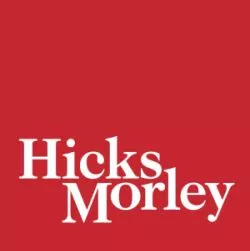The recent decision from the Human Rights Tribunal of Ontario (Tribunal) in Talos v. Grand Erie District School Board raises important issues about the provision of benefits to employees aged 65 and older. In Talos, the Tribunal found that section 25 (2.1) of the Ontario Human Rights Code (Code), which effectively permits employers to cease providing employees with benefits at age 65, is unconstitutional.1 More specifically, the Tribunal held that this age-based "carve out" from Code protection violates the equality guarantee under section 15 of the Canadian Charter of Rights and Freedoms (Charter) and cannot be justified under section 1 of the Charter as a reasonable limit. The implications of the Tribunal's interim decision are addressed in this FTR Now.
Background
In 2005, the government of Ontario passed Bill 211, An Act to amend the Human Rights Code and certain other Acts to end mandatory retirement. The core purpose of the Bill was to prohibit employers from requiring their employees to retire at age 65.
Bill 211 did not, however, end all age-based differential treatment in the workplace. It deliberately preserved employers' ability to provide age-differentiated benefit and pension plans to employees aged 65 and older. This was done in "a bid to maintain flexibility for the workplace parties to make arrangements that would respect the financial viability of those plans."2
Decision
The Applicant in this case is a secondary school teacher whose benefits ceased when he turned 65. He alleged discrimination based on age and argued that section 25 (2.1) of the Code, which permitted the termination of his benefits, infringed his equality rights under the Charter. At the outset of the hearing, the Applicant confirmed that his allegations were based exclusively on the discontinuance of health, dental and life insurance benefits for workers age 65 and older.
The Tribunal first determined that the Applicant had standing to bring this constitutional challenge – as an affected individual and as a member of a group that experiences disadvantage. It then considered two issues: (1) whether section 25 (2.1) of the Code violates section 15(1) of the Charter; and (2) if it does, whether it can be justified as a reasonable limit under section 1 of the Charter.
On the first issue, the Tribunal accepted the Applicant's position that the carve-out under the Code creates a distinction based on a protected ground (age), and that the distinction has the effect of perpetuating and exacerbating the disadvantage already faced by workers aged 65 and older. As such, it was held that section 25 (2.1) of the Code infringed section 15(1) of the Charter.
Similarly, on the second issue, the Tribunal agreed with the argument put forth by the Applicant and certain intervenors, including the Ontario Human Rights Commission (OHRC), that the infringement of section 15 could not be justified as a reasonable limit under section 1. This determination by the Tribunal was grounded, in particular, on two key findings:
- the exception under the Code constitutes a "blanket carve-out" and, as such, does not "minimally impair" the right of workers age 65 and older to equal compensation; and
- the Ontario legislature could have adopted "less intrusive means" to meet its objective of maintaining the financial viability of workplace group benefit plans.
In concluding that the infringement could not be justified, the Tribunal declined to follow the 2010 arbitral decision in Chatham-Kent v. O.N.A. on the same issue.3 The divergent result in this case appears to be based on certain evidentiary findings. In particular, the Tribunal noted that there was now experience and historical data relating to the financial sustainability of benefits plans that was not available to the arbitrator when the Chatham-Kent case was decided.4
Significantly, the Tribunal gave very little weight to the testimony of the expert put forward by the Attorney General. As a result, the Tribunal accepted the evidence of the OHRC's expert – namely, that on the facts of this case, it is "financially sustainable" and "not cost-prohibitive" for employers to continue health care, dental and modified life insurance benefits for employees up to age 79.
Implications
The immediate impact of this award is limited in several respects. First, only courts have the authority to issue a general declaration of constitutional invalidity. This means that the Tribunal's interim decision in this case is not binding on future decision-makers.
Second, the Applicant's allegations were expressly limited to group health, dental and life insurance plans. Therefore, as the Tribunal stated, this "decision does not address long term disability insurance, pension plans and superannuation funds."5
Finally, the Tribunal's decision on the constitutional issue was an interim decision, and was not determinative of the Applicant's case on the merits. The Applicant must still prove his case and substantiate his claim for damages, if any.
Notwithstanding the decision's apparent limited scope, all employers in Ontario should be prepared for the possibility that this finding will be followed in future cases. To that end, employers – especially those with a practice of terminating or reducing employees' benefits at age 65 – should be turning their minds to how the Talos decision applies in their particular circumstances and in the sector in which they operate.
Footnotes
1 Section 25 (2.1) of the Code operates in conjunction with s. 44 of the Employment Standards Act, 2000 and O. Reg 286/01 to create a distinction between workers who are under and over 65 years of age.
2 Talos v. Grand Erie District School Board, 2018 HRTO 680, para. 15.
3 Chatham-Kent (Municipality) v. O.N.A. (O'Brien) (Re), 104 C.L.A.S. 267 (October 31, 2010).
4 Talos, para. 271.
5 Talos, para. 284.
The content of this article is intended to provide a general guide to the subject matter. Specialist advice should be sought about your specific circumstances.


